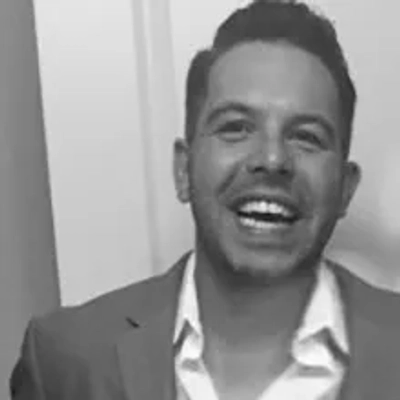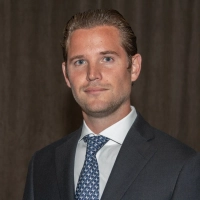15 Strategies for Building and Developing An Exceptional Finance Team
Building an exceptional finance team is crucial for any organization's success in today's complex business landscape. This article explores proven strategies, drawing on insights from industry experts, to help you assemble and nurture a high-performing financial workforce. From blending analytical rigor with strategic thinking to fostering a culture of continuous feedback, these approaches will equip you with the tools to develop a finance team that drives your company forward.
- Blend Analytical Rigor with Strategic Thinking
- Empower New Hires with Impactful Projects
- Hire for Adaptability Using Problem-Solving Assessments
- Prioritize Empathy in Finance Team Recruitment
- Develop Ethics-Focused Teams Through Cross-Training
- Create Finance Teams Reflecting Clinical Reality
- Foster Continuous Feedback Culture in Finance
- Implement Product-Specific Internal Certification Programs
- Build Literacy-First Approach in Finance Teams
- Segregate Risk, Performance, and Capital Functions
- Construct Teams for Governance and Development
- Establish Finance Academy for Talent Development
- Leverage SaaS Tools to Enhance Team Focus
- Hire for Coachability and Provide Stretch Projects
- Seek Communicators Who Simplify Complex Concepts
Blend Analytical Rigor with Strategic Thinking
When it comes to building a finance team, I've found the biggest differentiator isn't just technical skill—it's mindset. Finance professionals often get hired based on their ability to manage numbers, but what sets apart a truly exceptional team is their ability to interpret those numbers and influence decisions across the business. My approach has been to look for people who can bridge both worlds: analytical rigor and strategic thinking.
One strategy that's yielded exceptional results is hiring for potential and then embedding cross-functional exposure into development. For example, when bringing in new analysts, we don't silo them immediately into pure reporting roles. Instead, they're paired with product, sales, or operations leaders on specific projects. This gives them a firsthand view of how their financial insights translate into real-world decisions and outcomes. It also fast-tracks their ability to speak the language of the business, which is critical when finance is expected to be a partner, not just a back-office function.
The payoff has been twofold. First, the team develops sharper business acumen and stronger communication skills, which means they're more effective in influencing strategy. Second, it creates a natural pipeline for leadership because people are growing in breadth as well as depth. Over time, this approach has reduced turnover and created a culture where finance is seen as a hub of problem solvers rather than gatekeepers.
The key lesson for me is that finance talent development isn't just about technical training or certifications. It's about creating opportunities where finance professionals can step outside their spreadsheets and engage directly with the business. When you hire for curiosity and then give people the chance to apply it across functions, you build a team that doesn't just report the numbers—they shape the story behind them.
Empower New Hires with Impactful Projects
I've learned that building a strong finance team is a lot like making a good cup of coffee — the beans matter, but so does the grind and the brewing process. I look for people who aren't just good with numbers but who also have the curiosity to ask why those numbers matter. I've hired people who challenged my thinking in the best way possible, and that's been invaluable.
One strategy that's worked incredibly well is giving new hires a real project in their first month that directly impacts the business. It might feel a little nerve-wracking at first, but it builds trust fast and shows them that their work matters from day one. I've seen quiet, cautious hires light up with confidence once they see the results of their decisions affecting the company. It makes them more invested and turns the team into true partners rather than just number crunchers.
Hire for Adaptability Using Problem-Solving Assessments
We built and developed our finance team with a focus on hiring for adaptability and building for scalability. Technical skills like accounting, forecasting, or compliance can be trained and refined, but adaptability—the ability to work across borders, adjust to changing regulations, and support both clients and internal teams—is non-negotiable in our industry.
One strategy that has yielded exceptional results is hiring based on problem-solving case assessments rather than just resumes. Instead of only screening for prior experience, we give candidates scenario-based challenges that mirror real issues they'd face, such as reconciling international payroll discrepancies or streamlining reporting across multiple jurisdictions. This not only tests technical competence but also reveals how they think under pressure.
The result has been a finance team that's resourceful, client-oriented, and able to collaborate closely with recruitment and operations. Over time, this approach has lowered turnover and created a culture where team members feel empowered to innovate, not just process numbers.

Prioritize Empathy in Finance Team Recruitment
My finance team is small, but their job is immense. Their role extends beyond monetary matters; they deal with families in crisis. When a family is trying to get their loved one into treatment, the last thing they need is a cold conversation about insurance. I recognized the need to build a finance team that understood the emotional gravity of their job.
The most effective strategy we've implemented is to seek individuals with backgrounds in social work or healthcare, even if they lack traditional finance experience. I can teach someone how to file an insurance claim, but I can't teach them how to empathize with a scared and hurting parent. Therefore, we prioritize hiring for heart first, and then we train for the necessary skills.
The results have been remarkable. My finance team is now able to help families navigate the complex insurance process with a level of compassion that has transformed the client experience. This approach has significantly reduced stress for our clients and their families, which has made our business more effective overall.
My advice is straightforward: prioritize heart when hiring. The most valuable skill for my finance team is empathy, and that's not something that can be taught in a classroom. It's a leader's responsibility to hire for heart first, and then train for the required skills.
Develop Ethics-Focused Teams Through Cross-Training
I create finance departments based on ethics, controls, and service. The facility has a centralized general ledger, AP, AR, and revenue cycle with FP&A for service line decision support. Policies are codified, taught, and monitored. It's really more integrated as access controls and vendor due diligence in order to assure HIPAA compliance. This cadence consists of the normal close, variances, and board quality reports in plain language to non-financial management. Their task is to protect the mission, to ensure the efficient use of resources, and to try to anticipate risks before they become crises.
One example of an excellent strategy is a formal mentorship and cross-training program. Each new staff member spends time in intake, billing, and clinical documentation review in order to develop a sense of how this impacts staff and families. They then put together a final project that enhances an internal control or minimizes waste, and present it to other fellow employees. The result is professionals who maintain standards without losing compassion. It institutionalizes succession plans and supports finance credibility throughout the organization.

Create Finance Teams Reflecting Clinical Reality
I create finance teams that reflect clinical reality. It couples the controller, with robust healthcare accounting expertise, alongside the FP&A lead who understands program costing, staffing ratios, and payer contracting dynamics. Each of these programs is seen as a "service line" that has defined intake-to-discharge metrics, a budgeted caseload, and a workforce that has an evidence-based staffing model. HIPAA is not optional: PHI is obfuscated, and finance only sees what they need to access. As a team, our superpower is closing the loop between budget and what actually occurred in 10 business days, and probably more significantly, running a monthly action plan that operators can execute without anyone's permission, my permission, or going through bureaucracy.
Of those that do succeed, it is because they are framed as having an ROI from a family impact perspective during the development process. Finance analysts are trained to make the financial argument in a language operators understand, such as having the necessary paperwork filled out so as not to put unnecessary additional work onto clinicians in an already busy day. In hiring, we do this through a case study with applicants where they are tasked with rebalancing a program budget after a sudden change in payers. We also watch for sensitivity to caring teams and an ability to locate savings that do not compromise the therapeutic integrity of the project. This creates trustworthy and effective partners.

Foster Continuous Feedback Culture in Finance
We created a development culture that prizes continuous feedback, not just annual performance reviews. Managers schedule weekly one-on-one coaching sessions where analysts review wins, challenges, and growth opportunities. Feedback is specific, actionable, and tied to live projects, not abstract evaluations. Analysts leave each meeting with clear adjustments and renewed confidence in their contributions. This rhythm builds trust, accelerates learning, and prevents small issues from becoming significant problems.
The strategy's effectiveness shows up in employee engagement scores and financial outcomes simultaneously. Analysts feel heard and supported, reducing turnover and boosting morale across the finance team. Leaders benefit from more accurate, real-time insights delivered by motivated analysts. The feedback culture transforms finance from a compliance function into a trusted strategic partner. That shift has proven invaluable for ensuring financial rigor while empowering human potential within our organization.

Implement Product-Specific Internal Certification Programs
One strategy that's been really effective for us at Titan Funding is building internal certification programs around the specific products we offer, like bridge loans and commercial financing. During a training cycle, I watched a new hire gain confidence quickly after becoming certified on lending structures, which translated into closing deals more efficiently. My advice is to invest in education that directly ties to your core products—it creates a stronger, more adaptable team.

Build Literacy-First Approach in Finance Teams
I create small and efficient finance teams with expertise in community-based recovery economies. Fundamentally, this means accurate bookkeeping, cash forecasting, and basic unit economics at the house or program level. The controls are minimal but effective: codes of moral approval, forgiveness, and established practices. HIPAA is adhered to via the separation of any PHI, along with staff training in minimum necessary information handling. The management rhythm follows occupancy, rents, and basic operating expenses and translates this information to the ground to help house managers make operational changes.
One strategy that does work is to make it a literacy-first approach. All hires, including future managers, are required to pass a realistic budgeting and cash runway exercise that begins with a rent roll and concludes with a 12-week cash view. We evaluate for clarity and pragmatism. Finance also trains non-finance staff on basic financial skills as a way of continuing to build capacity. This mutual understanding prevents conflicts associated with following processes designed to protect cash and to enforce accountability.

Segregate Risk, Performance, and Capital Functions
I will begin by segregating the functions of risk, performance, and capital. Risk encompasses control, policy, and compliance. Performance also includes FP&A, pricing, and operating cadence. The Capital department handles treasury, debt, and investor relations. When the data needs to be separate from financial information and mapped to HIPAA for healthcare transactions or real estate transactions and so on, then I have PHI that is isolated to protect with audit trails, documentation, duties segregation, signature approval, etc. The team conducts a monthly operating review rollup that marries census/occupancy, payer mix, rate, and cost per unit with cash and covenant headroom. I want the 'finance' department to be the first to raise issues and try to suggest finance prevention measures that operators can implement in the quarter.
During hiring and onboarding, I favor a hiring committee simulation. The candidates will be given an actual underwriting/service-line scenario, involving missing data, and will be asked to write a memo discussing return hurdles, volume/rate sensitivity, compliance exposure, and working capital requirements. We are testing judgment, not perfection. New hires then participate in this exercise again at 90 days using our live data. It builds in decision quality, enhances communication in crisis management, and creates a shared context among financial, operations, legal, and clinical executives.

Construct Teams for Governance and Development
The teams I construct perform two major functions: governance and development. The organization is comprised of Controllership, Tax & Treasury, and FP&A with BI. I look to hire for curiosity, speed, and accuracy, and add layers of process maturity through well-documented close, reconciliations, and variance playbooks. The international background incorporates currency, transfer pricing, and compliance. This cadence is comprised of weekly cash/KPI Flash, monthly close that comes on a promised date, and a rolling forecast that drives hiring and capital allocation.
The outcome of this is a competency matrix and scenario drills. They all have skills that apply to the consolidation of peace and to dealing with stakeholders. Employment contracts contain a near history-dependent acceleration clause and forecasting sensitivity. Training is provided quarterly in the form of simulated covenant pinches, price shocks, or demand surges. They also practice under time pressure, learn cross-coverage, and gain trust. This provides incremental increase in capacity, rather than only waiting until crisis time.
Establish Finance Academy for Talent Development
I defined finance in terms of controllership, FP&A, treasury, tax, and investor relations. Roles and interfaces are made explicit through RACI charts and stated policies. Within healthcare, HIPAA is put into practice through access controls and vendor reviews. Their operating model includes a fast close, disciplined forecasting, and taking a portfolio view of initiatives by allocating resources to the highest risk-adjusted returns. It must be auditable and useful to operators.
My strongest asset is a 12-week Finance Academy for new and emerging talent. The curriculum includes accounting policy, forecasting, capital planning, communication, and ethics. This involves running a business partner project that each identified participant will have worked on, demonstrating measurable results such as reduced forecasting error or the ability to quicken the cash application process. The case draws on a real practical scenario to judge integrity, judgment, and clarity in hiring. It provides faster readiness, quality control, and a "bench" of talent.
Leverage SaaS Tools to Enhance Team Focus
For me, using SaaS-based financial automation tools has been a game-changer in how I develop our finance team. At FuseBase, automating our reporting freed the team from manual spreadsheets, which shifted their focus toward analyzing trends and supporting our strategic growth decisions. I'd recommend investing in tools that let your finance team spend less time crunching numbers and more time driving insights.

Hire for Coachability and Provide Stretch Projects
When building and developing a finance team, I look beyond technical skills and prioritize alignment with the organization's pace, communication style, and cross-functional needs. I focus on hiring people who can not only manage the numbers but also translate them into insights for non-finance partners. I also believe in building a team that balances precision with adaptability—especially in fast-changing environments.
One strategy that has consistently yielded strong results is hiring for coachability and pairing new hires with stretch projects early on. In one case, I brought on a junior analyst who lacked experience in forecasting but had a strong learning mindset. We paired her with a cross-departmental budget planning initiative, gave her mentorship and visibility, and within six months, she was leading monthly reporting for senior leadership.
That experience confirmed for me that potential can outperform experience if you create the right environment. Structured onboarding, early exposure to real business challenges, and access to mentoring unlock growth that resumes can't always predict.

Seek Communicators Who Simplify Complex Concepts
When I contemplate building a finance team, I always begin by seeking individuals who can explain complex financial concepts in simple, relatable ways. At The Stock Dork, it has been invaluable to have analysts who can take intricate market data and translate it into insights that anyone can use. One hire who stood out had a gift for breaking down ETF strategies almost as if teaching a high school class, and our audience engagement skyrocketed.
Generally speaking, you're in good shape with hiring for clarity of communication as long as you keep pairing that with ongoing training on new tools and fintech. I always recommend combining technical knowledge with communication skills because that balance makes the whole team much more effective.







